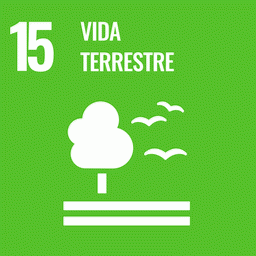Historically, conservation-oriented research and policy in Brazil have focused on Amazon deforestation, but a majority of Brazil’s deforestation and agricultural expansion has occurred in the neighboring Cerrado biome, a biodiversity hotspot comprised of dry forests, woodland savannas, and grasslands. Resilience of rainfed agriculture in both biomes likely depends on water recycling in undisturbed Cerrado vegetation; yet little is known about how changes in land-use and land-cover affect regional climate feedbacks in the Cerrado. We used remote sensing techniques to map land-use change across the Cerrado from 2003 to 2013. During this period, cropland agriculture more than doubled in area from 1.2 to 2.5 million ha, with 74% of new croplands sourced from previously intact Cerrado vegetation. We find that these changes have decreased the amount of water recycled to the atmosphere via evapotranspiration (ET) each year. In 2013 alone, cropland areas recycled 14 km3 less (−3%) water than if the land cover had been native Cerrado vegetation. ET from single-cropping systems (e.g., soybeans) is less than from natural vegetation in all years, except in the months of January and February, the height of the growing season.
In double-cropping systems (e.g., soybeans followed by corn), ET is similar to or greater than natural vegetation throughout a majority of the wet season (December–May). As intensification and extensification of agricultural production continue in the region, the impacts on the water cycle and opportunities for mitigation warrant consideration. For example, if an environmental goal is to minimize impacts on the water cycle, double cropping (intensification) might be emphasized over extensification to maintain a landscape that behaves more akin to the natural system.
